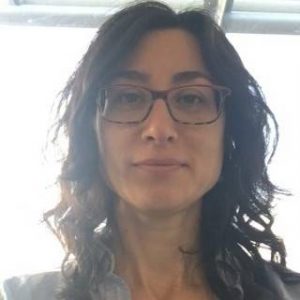
Aida Andrés
University College London
UK
EMBO | EMBL Symposium
This conference will take place at EMBL Heidelberg, with the option to attend virtually. Proof of COVID-19 vaccination or recovery is required for on-site attendance. Please see EMBL’s COVID-19 safety policy for on-site events.
For late registration please contact Lisa Trinh.
Combining genome-wide data from ancient and modern populations opens new windows into the past. Population-scale sequencing projects investigating past and present human diversity have already provided us with extraordinary insights into patterns of human variation and mobility through time and space. The available dataset of genome-wide data from modern humans has approximately tripled since the first edition of ‘Reconstructing the human past: using ancient and modern genomics’ in 2019, and the ability to carry out further large-scale studies on the scale of whole cemeteries and deeply sampled time transects makes it now possible to ask and answer questions that were simply impossible to address before.
The integration of archaeological evidence and historical records with genomic data elucidates aspects of human history and the cultural evolution of past societies. Genome-wide data from archaic human remains, such as Neandertals and Denisovans, allows to investigate human evolution in action and to provide direct insights into genetic changes that define our own lineage. The potential of ancient DNA data to reconstruct genomic variation of human-associated animals and plants to understand the process of domestication and their evolutionary trajectory is equally promising to such studies in humans.
Furthermore, the reconstruction of ancient pathogen genomes and metagenomic analysis of the oral and gut microbiomes provides us with molecular fossils to study microbial evolution through time. This meeting will involve scientists from population genetics, bioinformatics, microbiology, anthropology, archaeology and history and will strengthen future interactions in this young research field that is already changing the way we think about our past and will shape how we study genetic variation in the future.

University College London
UK
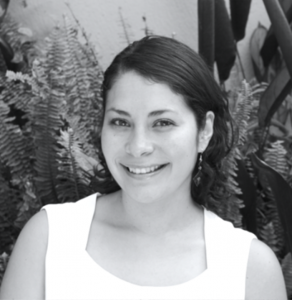
National Autonomous
University of Mexico
Mexico
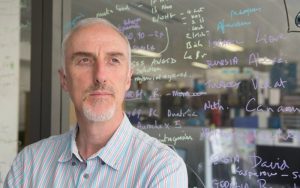
Trinity College Dublin
Ireland

Seoul National University
South Korea
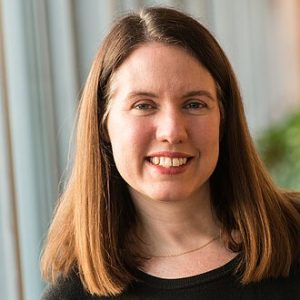
Max Planck Institute for Evolutionary Anthropology
Germany
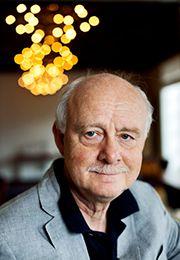
University of Gothenburg
Sweden
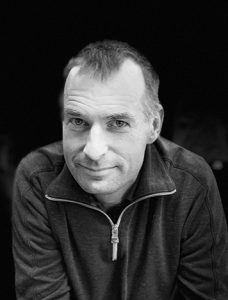
University of Oxford
UK
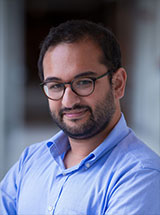
University of Pennsylvania
USA
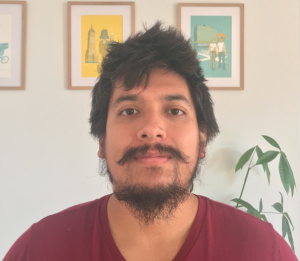
University of Copenhagen
Denmark

University of Basque Country
Spain
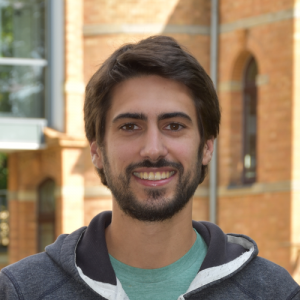
University of Tübingen
Germany
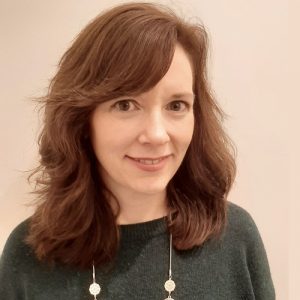
Rice University
USA
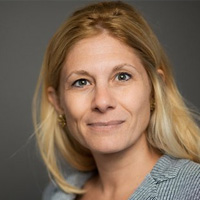
Columbia University
USA
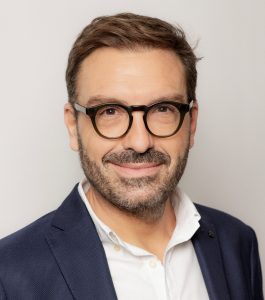
Institut Pasteur and Collège de France
France
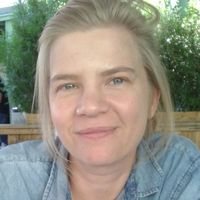
Uppsala University
Sweden

Arizona State University
USA
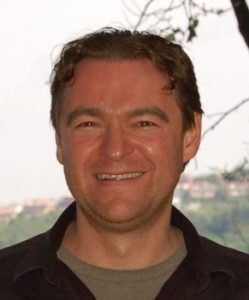
University College London
UK
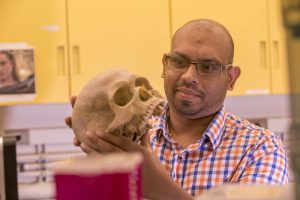
Stony Brook University
USA
(Virtual speaker)
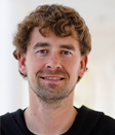
Max Planck Institute for Evolutionary Anthropology
Germany
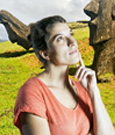
University of Lausanne
Switzerland
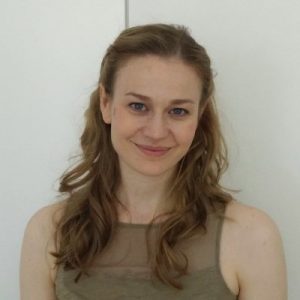
University of Copenhagen
Denmark
Got something to say? Tweet it! #EESHuman
| Time (Europe/Berlin) | Speaker |
|---|---|
| 12:00 – 13:30 | Arrival and registration with light refreshments |
| 13:30 – 13:45 | Opening remarks by scientific organisers |
| 13:45 – 15:00 | Session 1 – Genomic analyses of our closest living and extinct relatives |
| 13:45 – 14:15 | There and back again: a long history of gene flow between Neandertals and modern humans Janet Kelso – Max Planck Institute for Evolutionary Anthropology, Germany Not available on demand |
| 14:15 – 14:30 | Genome from 50,000 year old Neanderthal reveals deeply diverged and isolated late Neanderthal population in western Europe Tharsika Vimala – University of Copenhagen, Denmark Not available on demand |
| 14:30 – 14:45 | The evolution of introgressed Neandertal segments through space and time: insights from ancient and present-day human genomes Leonardo Nicola Martin Iasi – Max Planck Institute for Evolutionary Anthropology, Germany |
| 14:45 – 15:00 | The genetic history of Vindija Neandertals Arev Pelin Sumer – Max Planck Institute for Evolutionary Anthropology, Germany |
| 15:00 – 15:30 | Coffee break and Meet the speakers with: Janet Kelso, Greger Larson and Daniel Bradley |
| 15:30 – 16:45 | Session 2 – Genetic history of domestication |
| 15:30 – 16:00 | Domestication and the time depth of phylogeographic structuring Greger Larson – University of Oxford, UK |
| 16:00 – 16:15 | Dual ancestry of dogs and the early dogs of Europe Anders Bergström – The Francis Crick Institute, UK |
| 16:15 – 16:45 | Four legs good: ancient animal genomics and the Near Eastern origins of cattle, sheep and goat Daniel Bradley – Trinity College Dublin, Ireland Not available on demand |
| 16:45 – 17:15 | Coffee break and Meet the speakers with: Aida Andrés and Lluis Quintana-Murci |
| 17:15 – 19:00 | Session 3 – Detecting patterns of natural selection (part 1) |
| 17:15 – 17:45 | Reconstructing human genetic adaptations: adapting to cold habitats Aida Andrés – University College London, UK |
| 17:45 – 18:00 | Genetic adaptation to pathogens and increased risk of inflammatory disorders in post-Neolithic Europe Gaspard Kerner – Institut Pasteur, France |
| 18:00 – 18:30 | Ancient and modern admixture in human adaptation to pathogens Lluís Quintana-Murci – Institut Pasteur and Collège de France, France |
| 18:30 – 19:00 | Flash talk session 1 (3 min, 1 slide) #47 – Lucas Anchieri #59 – Ainash Childebayeva #68 – Michal Feldman #78 – Martin Kuhlwilm #82 – Arthur Kocher #88 – Megan Michel #102 – Stephane Peyregne #109 – Lehti Saag #115 – Lucia Spangenberg Not available on demand |
| 19:00 – 20:30 | Dinner |
| 20:30 – 22:00 | Social event: science pub quiz (EMBL Canteen) and networking drinks (ATC Foyer) |
| Time (Europe/Berlin) | Speaker |
|---|---|
| 09:00 – 10:30 | Session 3 – Detecting patterns of natural selection (part 2) |
| 09:00 – 09:30 | Using ancient DNA to learn about recent human evolution Iain Mathieson – University of Pennsylvania, USA |
| 09:30 – 09:45 | A simulation framework to explore and detect epidemic-driven selection Cindy Santander – University of Copenhagen, Denmark Not available on demand |
| 09:45 – 10:00 | Admixture facilitated adaptation in Neolithic Europe Tom Davy – The Francis Crick Institute, UK |
| 10:00 – 10:30 | Interpreting polygenic scores across time and space Molly Przeworski – Columbia University, USA Not available on demand |
| 10:30 – 11:00 | Coffee break and Meet the speakers with: Iain Mathieson, Molly Przeworski and Carina Schlebusch |
| 11:00 – 16:30 | Session 4 – Reconstructing the genetic history of human populations (part 1) |
| 11:00 – 11:30 | Ancient DNA studies and African population history Carina Schlebusch – Uppsala University, Sweden |
| 11:30 – 11:45 | The genomic diversity of Taiwanese Austronesian groups: implications for the ‘Into and Out of Taiwan’ models Dang Liu – Institut Pasteur, France Not available on demand |
| 11:45 – 12:00 | 100,000 years of selection in Ice Age grey wolves Pontus Skoglund – The Francis Crick Institute, UK |
| 12:00 – 12:15 | Modern human genetic variation during the Holocene at Liang Bua (Flores, Indonesia) Sandra Oliveira – University of Bern, Switzerland |
| 12:15 – 13:45 | Lunch |
| 13:45 – 14:15 | The genetic history of Ice Age Europe: 2nd season Cosimo Posth – University of Tübingen, Germany Not available on demand |
| 14:15 – 14:30 | The genomic landscape of contemporary western Remote Oceanians Lara R Araúna – Institut Pasteur, France |
| 14:30 – 14:45 | The genetic history of the southern Andes reconstructed from present day Mapuche-Huilliche ancestry Chiara Barbieri – University of Zurich, Switzerland Not available on demand |
| 14:45 – 15:15 | Coffee break and Meet the speakers with: Cosimo Posth and Choongwon Jeong |
| 15:15 – 15:45 | Disentangling layers of human migration and mixture in inner Eurasia with ancient genomes Choongwon Jeong – Seoul National University, South Korea |
| 15:45 – 16:00 | Genomic signals of continuity and admixture in the Caucasus Ayshin Ghalichi – Max Planck Institute for Evolutionary Anthropology, Germany Not available on demand |
| 16:00 – 16:30 | Flash talk session 2 (3 min, 1 slide) #48 – Mathilde André #66 – Roberta Davidson #72 – Guido Alberto Gnecchi-Ruscone #79 – Yilei Huang #84 – Liisa Loog #95 – Eleftheria Orfanou #103 – Divyaratan Popli #112 – Jakob Sedig #120 – Vanessa Villalba-Mouco Not available on demand |
| 16:30 – 18:00 | Poster Session 1 (odd numbers) |
| 18:00 | Free evening |
| Time (Europe/Berlin) | Speaker |
|---|---|
| 08:15 – 09:00 | Career workshop Hosted by Patricia Cabezas – EMBL Heidelberg, Germany Panellists: – María Ávila-Arcos – National Autonomous University of Mexico, Mexico – Choongwon Jeong – Seoul National University, South Korea – Aida Andrés – University College London, UK |
| 09:00 – 10:30 | Session 4 – Reconstructing the genetic history of human populations (part 2) |
| 09:00 – 09:30 | Demographic history and genetic structure in pre-Hispanic Central Mexico María Ávila-Arcos – National Autonomous University of Mexico, Mexico |
| 09:30 – 09:45 | A micro-scale investigation of Georgia’s population history from diachronic archaogenomic data Eirini Skourtanioti – Max Planck Institute for Evolutionary Anthropology, Germany Not available on demand |
| 09:45 – 10:00 | Demogenomic modeling of the timing and the processes of world early farmers differentiation Nina Marchi – University of Bern, Switzerland |
| 10:00 – 10:30 | Dairying, diseases and the evolution of lactase persistence in Europe Mark Thomas – University College London, UK |
| 10:30 – 11:00 | Coffee break and Meet the speakers with: María Ávila-Arcos, Mark Thomas, Kristian Kristiansen and Mary Prendergast |
| 11:00 – 15:00 | Session 5 – Combining genetics and historical evidence |
| 11:00 – 11:30 | Genetics and archaeology – the way forward Kristian Kristiansen – University of Gothenburg, Sweden |
| 11:30 – 11:45 | Insights from unprecedentedly large family trees from the Neolithic site of Gurgy in France Wolfgang Haak – Max Planck Institute for Evolutionary Anthropology, Germany Not available on demand |
| 11:45 – 12:15 | Challenges in reconciling genomic and archaeological data in Africa’s past Mary Prendergast – Rice University, USA |
| 12:15 – 13:45 | Lunch |
| 13:45 – 14:15 | Reconstructing ancient kinship practices with aDNA: the Hazleton North case Iñigo Olalde – University of Basque Country, Spain |
| 14:15 – 14:30 | Pater semper incertus: historical-genomic reconstruction of extra-pair paternity behaviour in human Western populations (1500-1900) Maarten H. D. Larmuseau – KU Leuven, Belgium |
| 14:30 – 15:00 | Comparing and contrasting local genetic structure amongst densely sampled early medieval cemeteries Krishna Veeramah – Stony Brook University, USA (Virtual speaker) |
| 15:00 – 15:30 | Coffee break and Meet the speakers with: Iñigo Olalde and Anne Stone |
| 15:30 – 17:00 | Session 6 – Evolution of human pathogens and our microbiome |
| 15:30 – 16:00 | Ancient tuberculosis in the Americas Anne Stone – Arizona State University, USA |
| 16:00 – 16:15 | Early diversity and evolution of Yersinia pestis from the late Neolithic and Bronze Age Gunnar Neumann – Max Planck Institute for Evolutionary Anthropology, Germany Not available on demand |
| 16:15 – 16:30 | Transmission routes of the Hepatitis B virus in early medieval Europe Alina Hiss – Max Planck Institute for Evolutionary Anthropology, Germany |
| 16:30 – 17:00 | Flash talk session 3 (3 min, 1 slide) #55 – Davide Bozzi #67 – Arun Durvasula #74 – Joscha Gretzinger #80 – Miren Iraeta-Orbegozo #87 – Mait Metspalu #101 – Sandra Penske #107 – Adam Ben Rohrlach #114 – Prajjval Pratap Singh Not available on demand |
| 17:00 – 18:30 | Poster Session 2 (even numbers) |
| 18:30 – 20:00 | Dinner |
| 20:00 – 22:00 | Social event: after dinner drinks with live jazz music (ATC Rooftop Lounge) |
| Time (Europe/Berlin) | Speaker |
|---|---|
| 09:00 – 12:00 | Session 7 – Methods for improving the analysis of ancient genomic data |
| 09:00 – 09:30 | Direct spatiotemporal mapping of ancient human genomes to estimate large scale mobility dynamics Stephan Schiffels – Max Planck Institute for Evolutionary Anthropology, Germany |
| 09:30 – 09:45 | An ancient DNA aware short-read mapper: mapAD J. Christian Heide – Max Planck Institute for Evolutionary Anthropology, Germany |
| 09:45 – 10:00 | Identification of long shared haplotypes in ancient DNA – Inferring distant relatives and recent demography Harald Ringbauer – Max Planck Institute for Evolutionary Anthropology, Germany |
| 10:00 – 10:15 | Imputation of ancient genomes Bárbara Sousa da Mota – University of Lausanne, Switzerland |
| 10:15 – 10:45 | Coffee break and Meet the speakers with: J. Víctor Moreno-Mayar |
| 10:45 – 11:00 | On the limits of fitting admixture graphs to allele frequency data Pavel Flegontov – University of Ostrava, Czech Republic |
| 11:00 – 11:15 | Looking for variants in a haystack: inferring population structure using rare variation Thiseas C. Lamnidis – Max Planck Institute for Evolutionary Anthropology, Germany Not available on demand |
| 11:15 – 11:30 | High-throughput approach for inference of archaic introgression models Jan Kocí – University of Ostrava, Czech Republic |
| 11:30 – 12:00 | Ancient Rapanui genomes reveal pre-European trans-Pacific contact with Indigenous Americans J. Víctor Moreno-Mayar – University of Copenhagen, Denmark Not available on demand |
| 12:00 – 12:15 | Closing remarks and poster prize |
| 12:15 | Packed lunch and departure |
| 13:00 | Optional: Shuttle bus to Frankfurt Airport (Terminal 1) Tickets can be purchased during the conference for 25 EUR |
On-site registration fees include admission, conference materials, COVID-19 safety measures, meals and coffee breaks. Participants are expected to book and pay their own accommodation and travel expenses.
Virtual registration fees include access to all of the talks (livestreamed and on demand) and facility to submit questions.
| On-site Academia | €700 |
| On-site PhD Student | €600 |
| On-site Industry | €900 |
| Virtual Academia | €175 |
| Virtual PhD Student | €125 |
| Virtual Industry | €225 |
NO visa support letters will be issued until payment of the registration fee is confirmed.
Accredited journalists may be eligible to register for complimentary press registration. Registrants may be required to provide accreditation or equivalent proof of press membership after registration. Please contact Lisa Trinh for more information. Please note that we do not offer complimentary registrations for editors of scientific journals.
Registration will be on a first-come first-served basis. Your place can only be confirmed after payment of the registration fee. If you are added to our waiting list, please consider taking advantage of our offerings to participate virtually.
On-site participants: Types of payments accepted are international bank transfers and credit card payments.
Virtual participants: We are only able to accept card payments. In exceptional cases we can accept bank transfers. Please contact events@embl.de for details.
Only registered participants attending the on-site event are eligible to submit an abstract. Abstracts will not be accepted from virtual participants.
After you have logged in and successfully registered, you will receive an email asking you to submit your abstract. Click on the link provided and enter your abstract in the text box provided. Alternatively you can submit your abstract by clicking on the link on the confirmation page directly after registering. The same login credentials are used for both processes.
Please note:
Title: The title should not exceed 20 words. Only the first word of the title should start with a capital letter and the rest of the title should be in lowercase.
Authors and Affiliations: Please fill in the author’s details as requested in the online form. The compulsory details are: First Name, Last Name, Organisation Name (Affiliation or Company), Country and Email. Mark only one author as the role of First author and please don’t forget to indicate who will be presenting. The order of the authors will be listed as follows: First Author, Co-First Author (alphabetically if multiple), co-author(s) (in the order added by the submitter).
Presentation Types: When submitting your abstract, you can apply for an oral or poster presentation. A selection process will take place with the results announced 2-3 weeks after the abstract submission deadline.
Please check our FAQs pages for further information on how to submit an abstract.
Limited financial assistance is provided by the EMBL Advanced Training Centre Corporate Partnership Programme and EMBO in the form of both registration fee waivers and travel grants. Availability is limited to participants attending on-site events in Heidelberg and will be indicated during the abstract or motivation letter submission process.
Your place in the meeting is only confirmed by paying the registration fee, which is mandatory even when receiving a fee waiver.
The fee waiver will cover the registration sum that you have paid to attend the course or conference.
The travel grant will cover the cost of travel (airfare, train, bus, taxi, accommodation, visa, and/or registration fees*) and is provided up to specified caps which are normally as follows:
– up to €400 for participants travelling to an EMBL Course, EMBL Conference or EMBO|EMBL Symposium from within Europe.
– up to €1000 for participants travelling to an EMBL Course, EMBL Conference or EMBO|EMBL Symposium from outside Europe.
– up to €500 for any participant travelling to an EMBO Practical Course or EMBO Workshop.
– up to €1000 for any participant working in Chile, India, Singapore or Taiwan travelling to an EMBO Practical Course or EMBO Workshop.
*Registration fees are only covered for EMBO Practical Courses or EMBO Workshops
The organisers may reduce the grant cap to accommodate more participants. Recipients will be notified of their travel cap amount when they are informed of the outcome of their application. Original receipts must be provided with your signature for all costs incurred within two months of completion of travel. Scanned copies cannot be accepted.
You may apply for financial assistance when submitting your motivation letter for courses, and abstract for conferences. In your application you will be asked to answer questions regarding why your lab cannot fund your attendance and how your attendance will make a difference to your career. Application for financial support will not affect the outcome of your registration application.
The scientific organisers will select the recipients of all financial assistance during the motivation letter or abstract selection process. Results will be announced approximately 6-8 weeks before the event start date, however for some events this may be delayed. Selection results do not impact your admission to the meeting. Selection is based on your current work or study location, the reasons for needing financial support and the impact this event will have on your career.
Costs will be reimbursed after the meeting only once a reimbursement form and original receipts (from travel costs) have been received.
View our list of external funding opportunities and information on attending a conference as an event reporter.
For further information about financial assistance please refer to the FAQ page.
Accommodation is not included in the conference registration fee.
As further changes in our events are possible due to COVID-19, you should book flights, trains and hotels with flexible options and favourable cancellation conditions.
The hotels below have rooms on hold for participants until 12 August 2022, in some cases at special rates. Please quote the booking code EES22-09 and confirm the exact price of the room with the hotel directly.
Conference shuttle buses are free of charge for participants, and depart from designated bus stops near the hotels to EMBL and back, mornings and evenings.
Download the bus schedule here.
The bus stops for this conference are:
View Conference shuttle bus stops and hotels in a larger map. Please note that not every bus stop will be used for every event.
Address: EMBL, Meyerhofstraße 1, 69117 Heidelberg, Germany. For further information on getting to EMBL Heidelberg visit Public Transportation to the Venue. For information about accommodation and local transportation please refer to the FAQ page.
All meals and coffee breaks are included in the registration fee. Our catering staff will prepare a wide variety of vegetarian meals, meat and fish dishes, soups, pasta, fresh fruit and vegetables, as well as a variety of desserts.
Please wear your badge at all times when serving yourself.
No food or drinks are allowed in the auditorium.
There are lockers available next to the stairs leading down into the Auditorium. You will find some of those equipped with sockets to charge your smartphone/tablet etc.
In most places the electricity is 220 volts AC (50 cycles). An adaptor and a plug that fits the German socket may be needed for your appliances/laptop (i.e. American, Japanese, etc.). A USB charging station for electronic devices is available at the registration desk.
EMBL Merchandise is available on Mon – Thu (9 am – 12 pm). If you are interested in purchasing an EMBL souvenir (products presented in the glass display in the registration area), please ask at the registration desk for more information.
Please read EMBL’s COVID-19 safety policy for on-site events.
Do not smoke in any EMBL building.
Eating and drinking is prohibited in the Auditorium and all laboratories.
Do not enter any restricted areas or the laboratories unless instructed to do so.
If first aid is required …
In case of fire …
Beyond first aid…
Please remember to bring your own medication, if needed, to the conference. Note that the next pharmacy is a 4-minute drive from the EMBL, but for many medications you will be required to see a doctor to get a prescription.
Ensure in advance that your medical insurance will cover you during your visit in the event that you do need to see a doctor while in Heidelberg. In any case, the EMBL Course and Conference Office will assist you to get to the pharmacy and a doctor of your choice if necessary.
Wi-Fi is available everywhere on the premises (no password required), just log on to ATC-Guest. The eduroam network (secure, world-wide roaming access service developed for the international research and education community) is also available.
‘’Lost and Found’’ are kept at the registration desk until the end of the conference.
There are lockers available on-site to store your luggage, which require a 2 EURO coin to operate. There is another luggage room on level E0, which is free to use but remains unlocked during the conference.
There is a nursing room available in the ATC Rooftop Lounge on level A29.
During the conference an EMBL Photographer may be taking photographs. If you would not like to appear in these, please inform the photographer or a member of the Course and Conference Office.
We can help printing your boarding passes/train ticket. Please send it to events@embl.de and collect your print-outs at the registration desk.
There is a room for prayer, mediation and yoga located on level E0 behind the Auditorium. Please be respectful of other participants using the room.
A variety of activities in Heidelberg can be found on this website: www.heidelberg-marketing.com
During the event we provide conference shuttle busses to and from EMBL. In addition, there is the public bus 39A that serves the EMBL campus and taxis can be easily booked at any time. Information on the conference shuttle busses can be found on the individual event website and more detailed information on travelling to EMBL can be found on our Travel Information page.
| English | German |
|---|---|
| Hello | Hallo |
| Goodbye | Auf Wiedersehen |
| Good morning | Guten Morgen |
| Good afternoon | Guten Tag |
| Good evening | Guten Abend |
| Good night | Gute Nacht |
| I’m sorry | Tut mir leid |
| Excuse me… | Entschuldigen Sie |
| How are you? | Wie geht’s? |
| I’m fine thanks. And you? | Mir geht es gut , danke, und dir/Ihnen? |
| What is your name | Wie heisst du? Wie heissen Sie? |
| My name is | Ich heisse |
| Do you speak English | Sprechen Sie Englisch? |
| I don’t understand | Ich verstehe nicht |
| Please speak more slowly | Können Sie bitte langsamer sprechen |
| Thank you | Danke schön |
| Where is the toilet? | Wo ist die Toilette? |
| Please call me a taxi | Bitte rufen Sie mir ein Taxi |
| How do I get to….? | Wie komme ich zum/zur…..? |
| A beer/two beers, please | Ein Bier/zwei Bier bitte |
| A glass of red/white wine please | Ein Glas Rot/Weisswein bitte |
| The menu, please | Die Speisekarte, bitte |
| Is there a local speciality? | Gibt es eine Spezialität aus dieser Gegend? |
| I’m Vegetarian | Ich bin Vegetarier |
| It was delicious | Es war hervorragend |
| The bill, please | Die Rechnung, bitte |
| I have a headache | Ich habe Kopfschmerzen |
| I have a sore throat | Ich habe Halsschmerzen |
| My stomach hurts | Ich habe Magenschmerzen |
| I’m allergic to | Ich bin allergisch gegen |
| I need a doctor who speaks English | Gibt es einen Arzt, der Englisch spricht? |
Please note that only on-site participants are able to submit abstracts and participate in the poster sessions.
We are using an event platform for this conference. More information about the platform will be shared ahead of the conference.
Additional information can be found in our Code of Conduct.
It is important to stay healthy and move around, especially when you are attending an event virtually. We have put together a few coffee break stretches and yoga videos in the conference platform for you to enjoy during the event.
Please use the Q&A function in the event platform.
If you have any other questions, you can go to the Help Desk in the event platform. Click on ‘more’ on the top menu and click Help Desk.
The programme is planned based on the Europe/Berlin time zone, unless otherwise stated. Please take your time zone into consideration when planning your attendance.
Please find additional information including FAQs, terms and conditions, COVID-19 safety policy and travelling to EMBL on our Information for Participants page.
COVID-19 information for on-site events at EMBL Heidelberg can be found in our COVID-19 FAQs.
Bronze sponsor
Media partners
Genome Research, a Cold Spring Harbor Laboratory Press journal
International Union of Biochemistry and Molecular Biology
Molecular Systems Biology, an EMBO Press journal
Open Biology, a Royal Society journal
Sponsorship opportunities
We offer a variety of event sponsoring possibilities, with the flexibility to select a set sponsorship package or combine individual sponsorship options to suit your event budget. Discounts are available for companies sponsoring multiple events at EMBL Heidelberg. View other conferences, or contact sponsorship@embl.de for further information on sponsoring possibilities.
If you are interested in becoming a media partner of this event, please visit our media partnerships webpage.
EMBO | EMBL Symposia promote scientific communication and collaboration in the European research area. They provide scientists with a platform to discuss and exchange ideas on forward-looking topics and new developments in the life sciences.
Topics emphasise upcoming developments and the interdisciplinary nature of related fields. Jointly funded and organised by EMBO and EMBL – and complementary to their respective courses, workshops, and conference programmes – the symposia promote scientific communication and collaboration.
All symposia are held in the EMBL Advanced Training Centre (ATC) in Heidelberg, Germany, or virtually.
Date: 13 - 16 Sep 2022
Location: EMBL Heidelberg and Virtual
Deadline(s):
Abstract submission: Closed
Registration (On-site): Closed
Registration (Virtual): Closed
Organisers:
Contact: Lisa Trinh